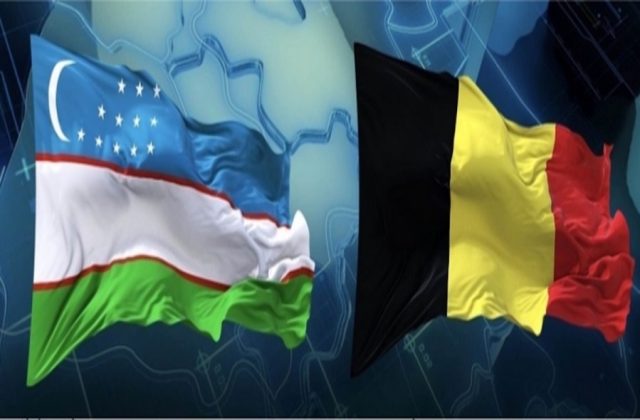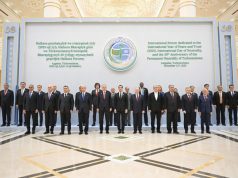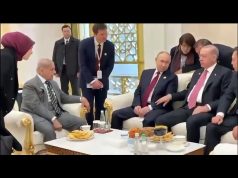TASHKENT, Monday, October 20, 2025 (WNP): President Shavkat Mirziyoyev of Uzbekistan will pay an official visit to Belgium this month, a landmark trip expected to usher in a new phase of engagement between Uzbekistan and the European Union through the signing of the Agreement on Enhanced Partnership and Cooperation (EPCA).
Announcing the visit, Obid Khakimov, Director of the Center for Economic Research and Reforms (CERR) in Uzbekistan, said the President’s engagements in Brussels will mark a “qualitatively new stage” in relations with the EU, reflecting Tashkent’s deepening political and economic reforms.
Since gaining independence, Uzbekistan’s relationship with the EU has evolved from early cooperation frameworks to a comprehensive partnership grounded in shared development goals. The turning point came after 2016, when sweeping democratic and economic reforms under President Mirziyoyev transformed Uzbekistan’s international image.
“The European Union now regards Uzbekistan as a strategic partner,” Khakimov said, recalling remarks by EU officials during the early years of reform. Key milestones have included Uzbekistan’s accession to the EU’s GSP+ trade scheme in 2021 and the initialing of the EPCA in 2022, which broadens cooperation across governance, investment, and sustainable development.
Economic reforms have reshaped Uzbekistan into one of Central Asia’s fastest-growing economies. Between 2017 and 2024, the country’s GDP doubled to $115 billion, foreign exchange reserves topped $48 billion, and the share of industry in the economy grew from 20% to 26%.
Uzbekistan’s trade with the EU expanded 2.4 times to $6.4 billion during this period, with exports rising 3.6 times to $1.7 billion and imports 2.2 times to $4.7 billion. The EU is now Uzbekistan’s third-largest trading partner, after China and Russia.
The EU’s preferential GSP+ system has played a key role, granting Uzbek exporters duty-free access to over 6,000 product categories, particularly in chemicals, textiles, metals, and food products. France, Lithuania, and Latvia are among Uzbekistan’s leading EU export destinations.
Investment flows have also surged. In 2024 alone, foreign investment and loans from EU countries rose 77% to $4.1 billion, led by Germany, the Netherlands, and Italy. Around 1,000 European companies now operate in Uzbekistan with a project portfolio exceeding €30 billion. The European Bank for Reconstruction and Development (EBRD) has invested more than €5 billion in Uzbekistan, mainly in the private sector.
Uzbekistan’s ties with Belgium date back to 1993, underpinned by agreements on investment protection and double taxation avoidance. In recent years, both sides have expanded cooperation in infrastructure, renewable energy, and digital technology.
Bilateral trade reached $62.3 million in 2024, while Belgian investment is gaining traction in advanced manufacturing and agri-processing. Notable collaborations include Jaga Climate Designers, which is developing local production of heating and ventilation systems, and Picanol Group, which is localizing textile machinery assembly. Belgian confectionery brands Belcolade and Prefamac are exploring chocolate manufacturing ventures in Uzbekistan.
Khakimov noted that Belgium’s strengths in pharmaceuticals, logistics, and food technology align well with Uzbekistan’s modernization priorities. Joint projects in biomedical research, fruit and vegetable processing, and cold-chain logistics are under discussion, leveraging Belgium’s Port of Antwerp as a strategic trade hub.
The visit also follows the landmark EU–Central Asia Summit hosted in Samarkand in 2025, where President Mirziyoyev outlined a framework for regional cooperation with Europe. The EU pledged a €12 billion investment package for Central Asia under the Global Gateway initiative, aimed at boosting connectivity, green energy, and trade.
Uzbekistan’s proposals at the summit included establishing a Central Asia–EU Joint Chamber of Commerce, an investment protection mechanism, and support programs for SMEs and women’s entrepreneurship—initiatives that are now expected to gain fresh momentum through the President’s Brussels visit.
With a population of 38 million and one of the youngest workforces in Eurasia, Uzbekistan represents a growing consumer market and a dynamic investment destination. More than 7.5 million people have been lifted out of poverty since 2017, and domestic demand continues to rise alongside industrial and digital modernization.
“The deepening of Uzbekistan’s engagement with the EU and Belgium is an objectively mutual process,” Khakimov said. “It will define the success of the upcoming state visit and lay the groundwork for long-term cooperation in energy, infrastructure, and sustainable development.”
The signing of the EPCA in Brussels, analysts say, will cement Uzbekistan’s position as a pivotal partner for Europe in Central Asia, bridging regions through shared values, innovation, and economic growth.




